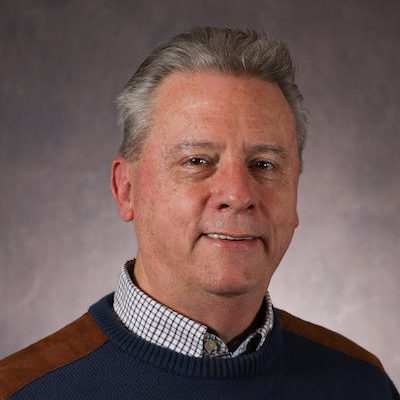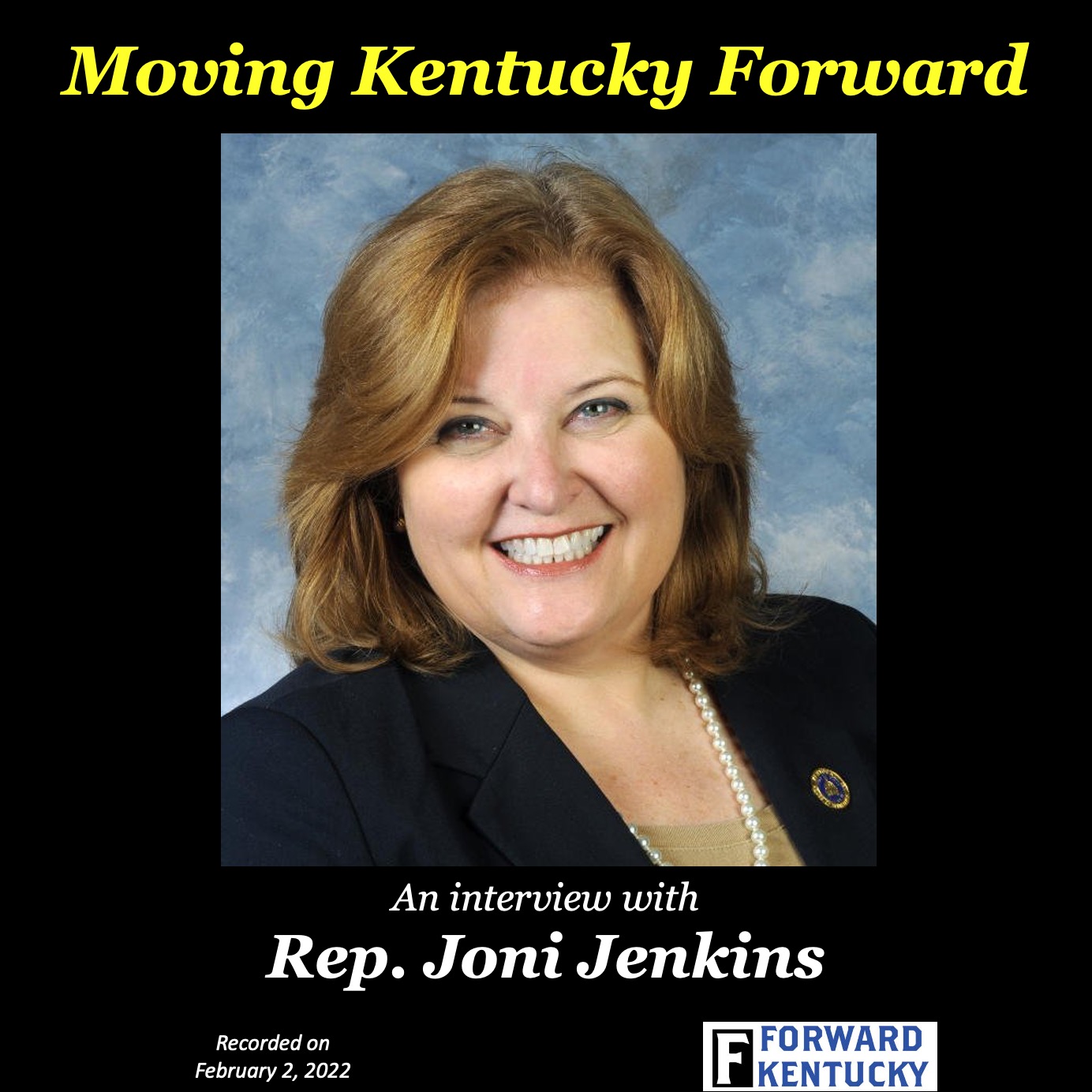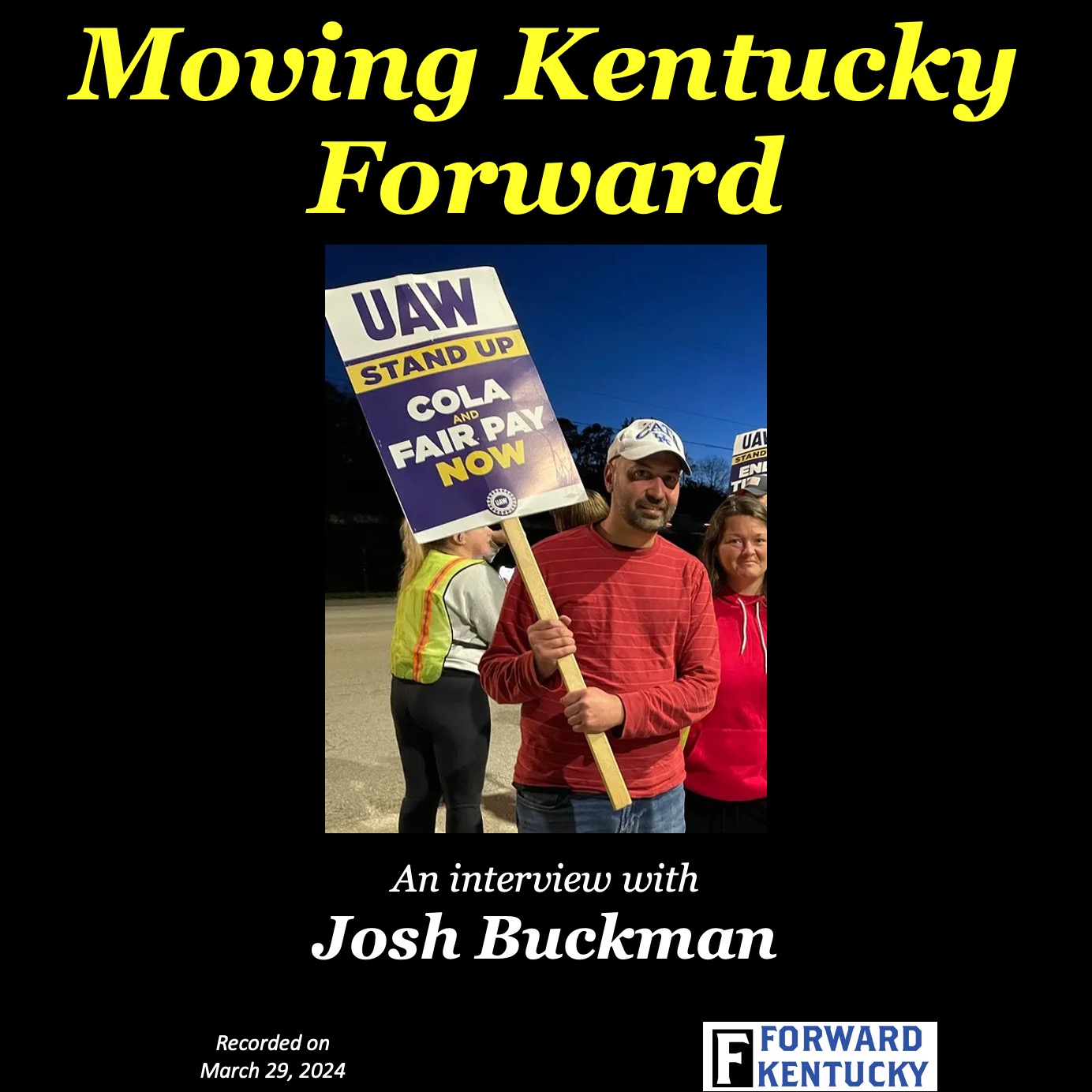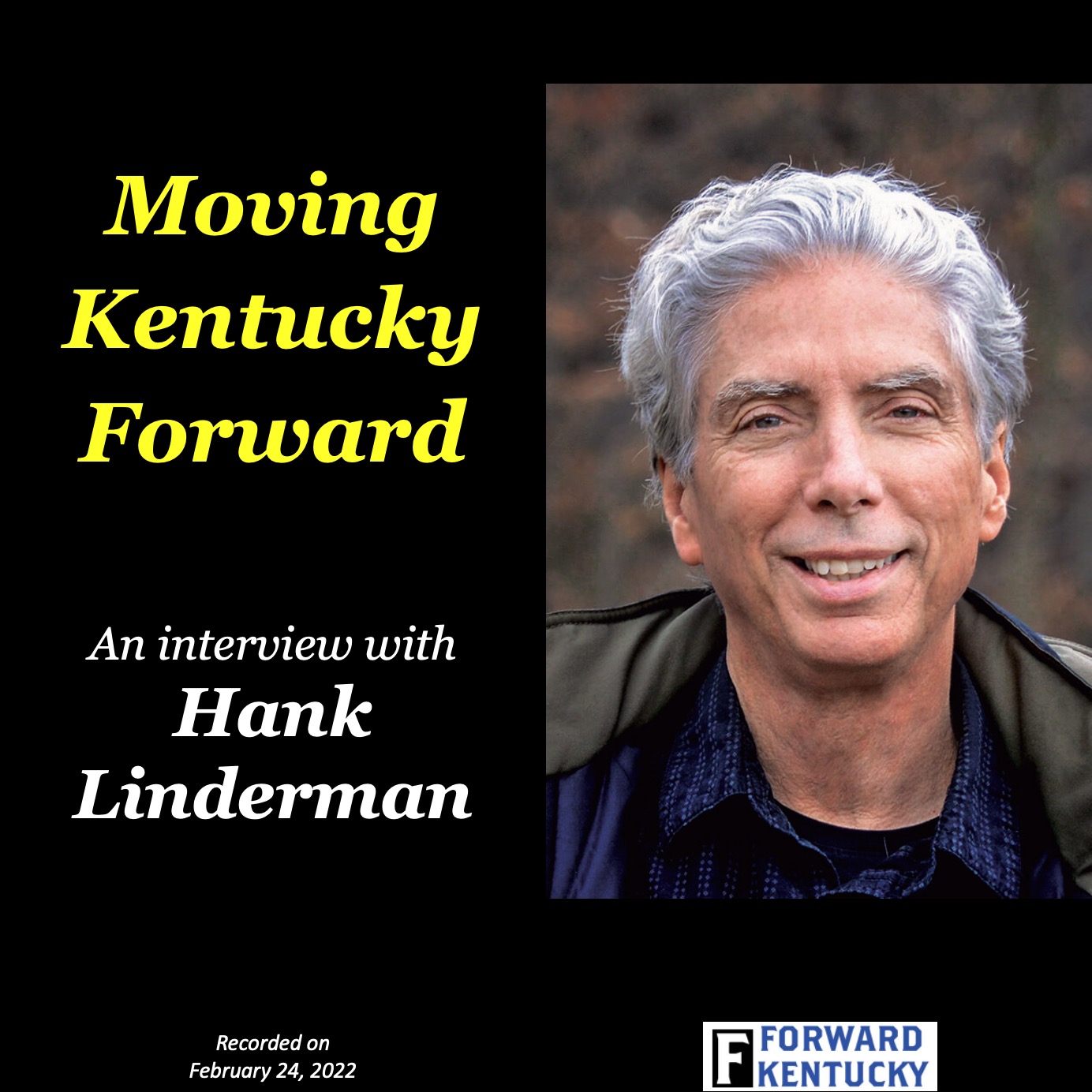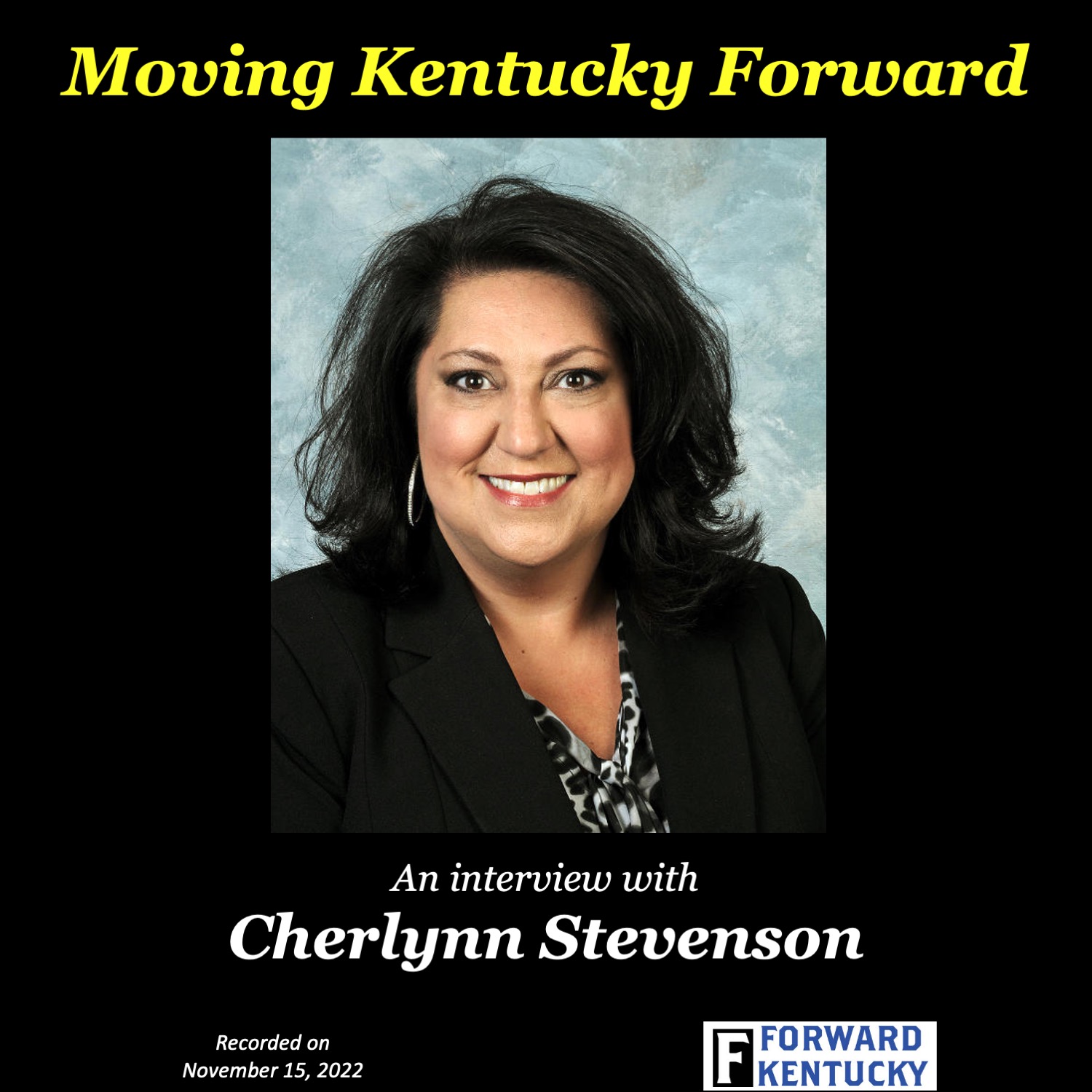Episode Transcript
Speaker 1 00:00:32 Hello and welcome to move the Kentucky forward. I'm Bruce Maples publisher forward, Kentucky, as most of you know, a number of Democrats have decided not to run for offices fall. One of the most significant is state representative Joanie Jenkins. She is the current democratic caucus chair in the house, and therefore is in leadership. She has been in Frankfurt for a good while and has many remembrances and insights to share with us. I asked her about her happiest time. I asked her about her sadness time. I asked her about what she has seen change in Frankfurt over the years. And finally, we talked about what Kentucky Democrats need to do going forward here then is my interview with state representative Joanie Jenkins.
Speaker 2 00:01:22 So I'm talking today with representative Joni Jenkins, one of our favorite people. Welcome back to movie, Kentucky forward.
Speaker 3 00:01:32 Thank you so much. It's good to be here.
Speaker 2 00:01:34 So I could probably spend an hour or two talking through all the things I would like to ask you about, but I'm sensitive to your time sensitive to our listeners time. So I'll try to keep it to a few important questions. So to start with, I know you've mentioned this, but let's just remind everybody, why did you decide not to run again because you probably would have won again
Speaker 3 00:02:00 During the redistrict game, the 44th district, which I've served for 28 years. I'm in my 28th year move significantly. I wasn't taken out of the district, but it became a majority minority district, a 50% or more of African-American residents of voting age. I have always said that the general assembly should look like Kentucky and always felt that it was too pale and male and wealthy to really reflect, uh, Kentucky. And from the time I looked at that map and, and, and I had, had already filed to run one more time, uh, in the old 44th. And then the new maps came out and I kept looking at them. I kept thinking. And then, you know, I was talking to some other folks, uh, around, and I just did not want to be the person that kept, uh, uh, person from color from serving in the general assembly. And it just seemed like it was everything kind of land up. And it was time for me.
Speaker 2 00:03:07 I know that a, I think the mayor of Shively is who has file or one of those filed to run. Yes. Did you speak to her before you made the decision or did she just do this on her own and was planning to primary?
Speaker 3 00:03:21 No, she was not planning to primary me. Um, when I made the decision she was at for reelection as mayor Shively, and I really wanted somebody from Shively to serve the 44th because historically they've had somebody from Shively and, um, I called her because I thought she might put me in contact with, um, a council person that she was impressed with or somebody else who had been active in Shively. Uh, so I called her and I said, look, I had told you, I was going to run one more time. This, this is what happened. And so I'm not going to run now and just wanted to talk to you about who might be a good person for me to call and reach out to. And she's like, well, what about me? And I said, oh my goodness, mayor, I figured you were running for reelection, but, and she said, well, can I think about it? So she thought about it for a while and then call me back and said that she wanted to do this.
Speaker 2 00:04:21 I'm interested in the fact that a number of long serving Democrats are not going to be there next year. What do you think that's going to mean for the house caucus in the Senate?
Speaker 3 00:04:36 You know, I can't really speak to the Senate caucus. I think you would need to talk to one of, one of those members about that. I think, um, for the house caucus we have, even though it's a small caucus, it's very dynamic. There's really smart people. There's some really energetic people. I have no fear that, um, new leadership is going to emerge and you know what, they might not do things the way I did it. And that's okay. Um, I think I always saw myself because I came into leadership so late in my career, you know, I, wasn't going to be somebody who served in leadership for 20 years, which kind of we saw that happen a lot, which I was not a big fan of that, but we saw that happen a lot. I knew that was not going to be the case with me.
Speaker 3 00:05:25 And I always saw myself as more of a transitional leader anyway, and that, and I, I try to change the way caucus operated. I tried to make it more caucus up instead of top down, tried to share as much information as I possibly could because information is power. So I tried to share that with my caucus members and I tried to, to, because it was a small caucus, I could kind of deal with them individually and try to help them develop their own skills and what they, what they were interested in and, and tried to bring them into two meetings just because we had so many new people, you know, and I, um, kind of buck the trend of, and I put some newer people on committees like ANR, so they could get used to, to, to those really important, uh, decisions that had to be made and, and learning really complex things. So I always saw myself as leading the way for the next generation of leadership.
Speaker 2 00:06:26 I have, obviously I've lived in Kentucky for a while and I've watched the general assembly change over time, but you've been there. You've been in the midst of, so obviously it's more Republican. I understand that, which makes it probably more conservative, but how has it changed inside, inside the chambers inside the, the whole, uh, operation? Is it, uh, less collegial? Is it more confrontational and I'm leading the witness, but what changes have you seen over your time there besides the party shifts?
Speaker 3 00:07:07 You know, I, I'm trying, I try when I, when I look back and think about these things, um, I try to keep in mind that I have the perspective that I had at the time. And I came into the general assembly when there were very few women, uh, always say we were still kind of a novelty at that point. Um, being a female who was pretty progressive at the time, uh, still pretty progressive, but for the time I was, I was a very progressive, I always said I was in the minority of the majority. It was completely run by white guys, uh, mostly rural, but I was in the majority. So, so there was privilege that comes with that. Um, I feel like we have really slipped over the years to being, um, less respectful of one another, that very often on the floor, when there are disagreements, they become very personal.
Speaker 3 00:08:10 Um, I've had, you know, members, mostly men on the other set lady from 44, like almost scold me on the floor because I don't hold the same opinions that they do. And, and that never happened before. But you know, one of the things that was really stressed to me when I first came was this is not personal. You don't make it about each other. You make it about the issue. You certainly can disagree, uh, and, and state your opinion, but it should never be about the individual. And that seems to have missed. And, and, and, you know, we we're, we've gotten to a point where it's, it is it's very toxic, I feel. And, you know, maybe it's because I'm in a very small minority now, but, um, just, it's very hard sometimes to fight back. But I mean, it's, and I'm very proud of my caucus because they do fight back in.
Speaker 3 00:09:05 It's really hard sometimes for them too, because it's, it is very toxic. Um, COVID has made it even weirder because you don't have the same allies that are coming there to catch your you on. Um, there's not, as many people are coming to committee meetings, it's changing a little bit, not as many people are in the gallery. It's just been a weird two years. Um, but you know, just as on the national level, it's gotten more partisan and more polarized, um, before you seemed like you could always find common ground and element that there are a lot of new people on the other side of it. I don't even know their names. I'm not sure who's who and I haven't made connections with a whole lot of them. I think it's due to COVID a lot.
Speaker 2 00:09:52 It would seem to me, and you can tell me if I'm wrong about this. It would seem to me that before COVID, at least you were in the same building and you would see each other in the hall, or you would see each other in the cafeteria especially and say, well, let's go get a bite to eat and, and be able to build relationships that way. And now the only time you see each other as either on zoom or on the floor, and it just seems harder
Speaker 3 00:10:18 And I'm not on committees now I gave up my committee so my members could have more committees. Um, so I don't see them in committee. We don't meet one-on-one much anymore. Um, it's, it's, it's, it's very, that's very different. When I first came to the general assembly, even though Democrats were in the majority, we were in office suites that were mixed. You know, Ron cram was across the hall from me for many years at some point. And it was, it was when the Democrats were in the majority, they made the decision to segregate us into suites that there are only Democrats and suites and only Republicans in certain suites. And I think that was a big mistake. I mean, I don't think we're doing secret super secret stuff in the offices, or at least to have was never, you know, you're not doing, you're not really doing political partisan things or you shouldn't be doing that.
Speaker 3 00:11:10 And, and, you know, the, the LRC offices. Um, and I think that was just another kind of step toward separating people. Um, you know, Ron cram and I did not agree on much of anything. We had really, really different, uh, thoughts about a lot of things, but every day, one of us would go in the other one's office and sit down and say, how's the family, you know, what are you working on? And, and, and I just don't see that happening quite as much. You have to almost kind of force it and does that, okay, I'm going to go talk to this person about this issue. And I just don't think it happens naturally, or as much as it used to
Speaker 2 00:11:52 Without framing this as you're old and decrepit, and looking back on a lifetime of whatever, I would like to spend a few minutes talking about your time there, who were some strong influences on you when you came there and during your time,
Speaker 3 00:12:11 Oh gosh, you know, I've seen so many, you know, the first person that became such a dear friend and so much of a mentor for me was Paul Mason, who was from Letcher county and who was chair of the budget subcommittee on health and human services. And he just had a big old heart for four people and women and minorities. And, um, we just became really, really good close friends. And, and, um, so he was, he was a great mentor. Um, gosh, there've been so many years already. Richards was a good friend, even though we, you know, he was much more conservative than I was. Um, he was, he was a great help to me in many ways, you know, the, the women, because there were so few of us when we first started, you know, the bitch caucus, uh, for example, limbo, who was kind of the senior member and Mary Lou Carson, Mary Lou has a year seniority on me.
Speaker 3 00:13:08 Um, so, uh, Kathy Stan, and, you know, we had, we had, we got, then we got in such good trouble all the time. Uh, I always tell the story of that first, um, session, which would have been 96. And there were just a few of Susan. John was Susan Jones went there yet. I can't remember how many women were there, but we were really upset about something. Leadership was doing everything. It's like, well, we're just going to go meet with them. And we're like, oh, we can't do that. And we just busted into a leadership meeting and it was the most empowering, scary.
Speaker 3 00:13:45 And you know, that, that led me to, when I got in leadership said, I'm never going to be that removed from people. I want people to feel comfortable coming and talking to me at any time. And, you know, specifically you've been in my office specifically designed a table of a design office to have a table in it. So I'm not sitting across the desk from somebody I'm sitting across the table from them. And it's, you know, people members wander in and out all the time, because that was something that didn't happen when, when I first got there, it was very much us and them. And I didn't want that. Um, you know, gosh, there've been so many people, uh, that have come and gone.
Speaker 2 00:14:26 Well, let me ask you another thing. What's your worst memory of your time there?
Speaker 3 00:14:32 Oh gosh, probably the worst day that I remember it a lot, a lot recently, my worst day in the majority, it was the day we passed the marriage amendment. I thought that was such a big mistake. I thought it was awful and ugly and disrespectful for so many of our citizens that was kind of in the majority the worst day ever the worst day in the minority was the day the sewer bill passed. And, you know, they subbed out a bill. They went to committee in a little room where everything was like, so anti democracy that whole day. And I remember sitting, um, in the leadership office, I guess I was in leadership then, but we were sitting and I was just crying because I'm like, this is how democracy and, you know, for somebody who had been there for all those years and loved the institution and loved, you know, the rules, I love rules. I'm a big rule follower. And, and to see everything just blasted away was just terrifying for me. And, and, you know, I mean, the rules are in place to protect the minority in, in so many ways. And when you just blow past all those, I just thought, oh gosh, we are, we are headed down this path. That is so, so bad for so many people, not just me personally, but so many people that way, that, that, that was a real dark,
Speaker 2 00:16:09 Well, let's chase that side tangent for just a minute, obviously on a national level, there is much concern about democracy and about what's the future looking like for our democracy. I don't hear or see as much concern about that at the state level in Kentucky, obviously, Texas, Georgia, Florida, wherever, but am I missing something or
Speaker 3 00:16:38 I think you are because we, my caucus talks about it a lot. We talk about it on the floor a lot. Um, you know, that the majority has slowly changed the rules in which we conduct ourselves in a way that, that I think are less transparent that, uh, give less public notice. And I don't understand that they have 75 members. They can do anything they want, they don't need us for a single vote, but every once in a while they need us, but you know, they can do anything they want and why they think they have to do things in a way that there's no public input to see, you know, when, when we talk about waiving posting and, you know, I know for most people, they have no idea what that means, but waiting posting means there is less public, there's less chance for the public to weigh in.
Speaker 3 00:17:34 There's less chance for the public to know what's going on. That we've always, you know, had the three days posting because three business days should give stakeholders and citizens the opportunity to say, Hey, this is going, I don't like it. Or I do like it. And I can come out of the state rep or my state Senator when you're waiving, posting and pulling a bill out, assigning it to a committee, run it through a committee and then bring it to the floor, all in a, you know, four hours time. That's just not good. And there's no reason for it. You know, occasionally you'll have some kind of emergency will happen and you're in the last days of the session and you really need to do something that makes sense that you, that you have the ability to say, okay, this is a very special situation. This needs to get done. We need to pass a budget. We need to be out. And that's when you rely on those, the ability to waive those things, you don't do it for them. You know, we've done it the first week, which makes no sense at all. You know, you've got 60 days, you know, if this is, if this is important enough to pass, it's important enough for people to know about it and see it and be able to weigh in.
Speaker 2 00:18:49 That's a great insight. What's your best memory.
Speaker 3 00:18:53 Um, one thing that, that was very personal for me, and it was very healing for me was the work we did in 2015, around the heroin crisis. I had just lost my nephew to an overdose and, you know, it was still very raw. Um, but we had a great bi-partisan both chambers group. The conference committee, Bob Stivers was on it. John, uh, Morgan was kind of a new, uh, legislator was on it. And, you know, we met for hours and hours and hours and talked about things. Um, because the, at that point, the house was still a majority Democrats. The Senate was a majority Republican and we had to talk to each other and we had to compromise and we had to convince each other of things and whether they were good or bad. And that session was like, I think the greatest session we were able to come together, we didn't get everything we wanted, they didn't get everything they wanted, but, you know, we got a syringe exchange, which is like a national model, uh, that we never thought we would get. You know, we, we really kind of moved for that moment, talking about this issue as a public health issue, not as a criminal justice issue. I mean, it was just, you know, I'm such a, I guess I'm such a geek, but it was like the perfect legislative moment. Um, and it was hard work, you know, it was very personal work, but, you know, the day that passed, I felt like we really had done something and was really proud to be a part of that.
Speaker 2 00:20:29 Again, I don't want to frame this as, this is the last word of your life, but
Speaker 3 00:20:37 The last couple of weeks have kind of been like being able to see your own eulogy. So that's been kind of fun.
Speaker 2 00:20:42 Yes. Yes. So I have, I have three final questions. What's next for you? Well,
Speaker 3 00:20:49 I have made a promise that from once I retire in December, you know, at the end of December that I'm not going to make any big decisions for a while, then I'm really going to think about what I want to do next. Uh, I think there's a lot of volunteer work in my feature. Um, my church is doing some really exciting things with youth and with seniors. Uh, and I loved working with the youth and I haven't been able to do that quite as much since I've been in leadership. So I'm really looking forward to working in the after-school program. Um, yeah. I wanna write some, you know, I've, I left, I just wrote a piece for Leo that everybody really liked. And I like, it's the first thing I really wrote on my own for a while, because I have people that write stuff for me all the time, but this was a very personal piece that I wrote during the U of L gang.
Speaker 3 00:21:38 And, uh, um, I'm kind of like thinking that I would like to get some X or I guess I should say former legislators and some other people who've been on the inside to form kind of a writing group. Um, I think maybe I can make some good trouble from the outside. Um, so yeah, I'm looking at things like that. Um, I don't think I want a full-time job, um, have a nice retirement, um, that I've earned from being in government for a long time. And I think, I think I want to do that, but I'm not making any big, big decisions right now.
Speaker 2 00:22:15 Well, you know, of one publisher that will publish your stuff just pretty much sight unseen, just send it over. Um, second from the last question, is there anything that I didn't ask you that you wish I had or anything you want to bring up that I haven't mentioned?
Speaker 3 00:22:33 You know, one thing that became really clear to me and I've gotten a lot of questions this week about our recruitment and, uh, you know, we need as a party, we need as people who care about, um, progressive ideas, we really need to start reaching out beyond Louisville and Lexington. We need to meet making, making, um, connections and partnerships with Democrats in rural areas. Um, that had a great meeting Mack last fall. Um, I was, I was recruiting and I called up, um, a really great guy from a tip. Uh, his name is Vinny Danskins, who is our candidate and the 70, oh, I forget what district it is. It's min if he can't eat. Anyway, I called him up just to kind of talk to him about, you know, somebody had said he might be interested in running. He was an active Democrat and we got to talk about farmers and I'm like, oh, Betty, I'm, uh, I'm upsetting her.
Speaker 3 00:23:34 I don't know much about farming. And, um, he said, you wanna meet some farmers come out here and I'll, I'll introduce you to some farmers. And I took, you know, Derek and, and buddy, and we went out on a Saturday and he made us beans and cornbread. And we sat around a big old table and talk to 14 farmers and Tammy, and they talked about farming. I learned a lot about farming. Um, I didn't not realize how close the margin that our farmers operate on. So really interesting stuff. Then we spent, we've talked about that for maybe 30 minutes. And then for, for two hours, we talked about what they wanted for their kids, that they were worried about their kids. They were worried about the education system. They're worried about drugs. They were that their kids weren't going to have jobs. They were worried if they did find a job, it was out of Kentucky and they were going to move away and have grandkids and they would never get to sit. And, you know, we had the best conversation and that conversation could have taken place anywhere.
Speaker 3 00:24:40 I would have that same conversation in Shively or the west end or the east end, because, and maybe Democrats need to start talking about that more. Maybe we need to start talking with a little more emotion about things, you know, um, many of us, and I'm one of those are such a policy geek. I'm going to tell you everything I know about something, here's the good part. And here's the bad part. Here's, you know what, and I think maybe Democrats need to learn to talk a little bit more emotionally about things and, and, and find those connections. And instead of trying to make people fit into what I think, seeing where the common ground is and, and moving together.
Speaker 2 00:25:26 Well, you anticipated my final question, uh, which was as you leave service in the state Capitol, and you look back over your time and the current landscape, what advice would you have for Kentucky Democrats going forward?
Speaker 3 00:25:45 Oh, well, that's, you know, I think it's, it's, it's trying to make those connections and making them on maybe a more human level than we do, and, and being free to talk about our values. And, you know, it doesn't have to be from a religious point of view, um, which for me feels really natural. Um, um, that's one thing I've learned over the years is, you know, I'm a big believer in separation of church and state, but also, you know, my faith is a big part of, of what led me to run, what keeps me serving and, and so, you know, making more value type statements instead of just policy statements. So, you know, I'm hoping I'll have that opportunity to maybe get around Kentucky and, and, and meet people and talk to them, you know, um, just because I'm not going to be an elective office. Um, you know, I still love this. I still love this state, you know, frustrates me a lot of times, but, you know, I still love the state and I want to leave it better than it is
Speaker 2 00:26:50 Joni Jenkins still serving until the end of this year, for which we are grateful. Thank you so much for being with us.
Speaker 3 00:27:00 Well, thank you. And thank you for always being such a good supporter of good progressive ideas and educating folks on how stuff works. And I don't know, maybe you and I will be working together down the road.
Speaker 1 00:27:14 That was representative Joanie Jenkins, the house minority caucus chair in the state house. I really want to thank her for her time. And especially for her service, she has served faithfully and well for a long time. And I'm frankly, looking forward to seeing what she's going to do next. I know it will be done with passion and with quality, and it will definitely be in the best interest of all of us. If you liked this podcast, please go subscribe. You can find all the places to subscribe on our website under the menu choice, where to follow us. And we have a lot of perks that members are getting right now, including a daily general assembly update. So I hope you will take advantage of that. Thanks for being with us. And we'll see you in the next
